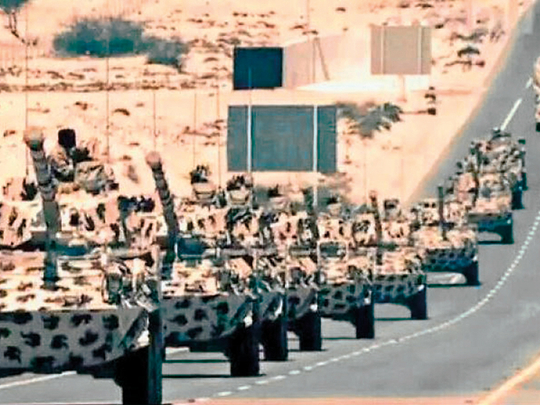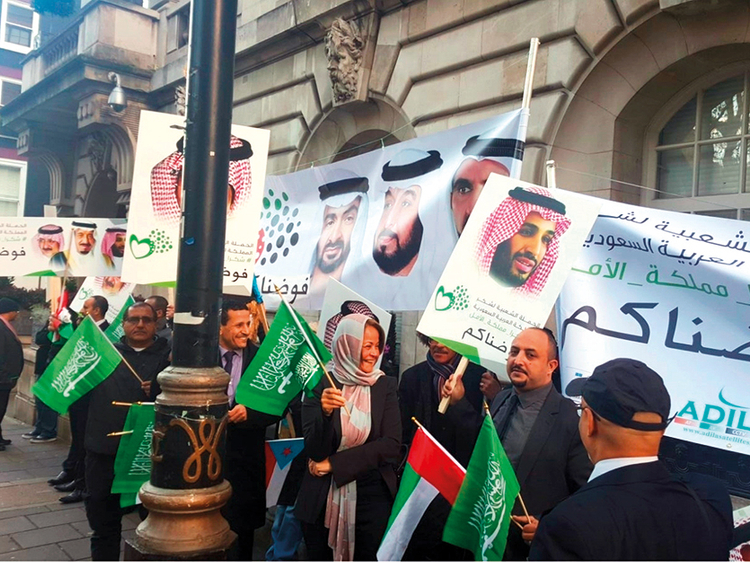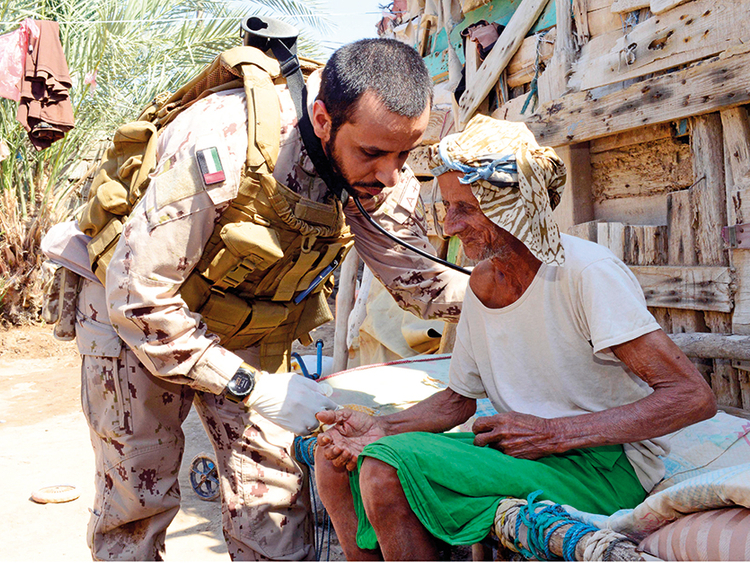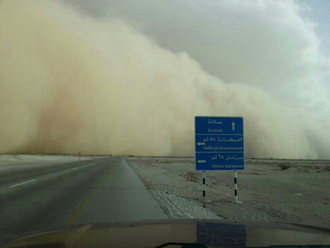
Dubai: Three years ago, a coalition of Arab countries led by Saudi Arabia intervened militarily in Yemen. The objective was clear: to uphold the legitimacy of the internationally recognised government of President Abd Rabbo Mansour Hadi, against which a militia had carried out a coup.
The militia in question, the Al Houthis, are an armed organisation backed by Iran. Their coup was rightly seen as part of Iran’s regional expansion agenda. The Gulf Arab states could simply not afford to have a heavily armed Iranian proxy calling the shots in a country that was right on their borders. This scenario would pose an unacceptable risk to their security, and the stability of the broader region.
On March 25, 2015, the Al Houthis seized a strategic military base north of Aden, Yemen’s second largest city, taking the country’s defence minister hostage. On that night, Saudi Arabia started its military campaign, alongside the UAE and eight other mostly Arab states. The aim was to stop Al Houthis’ alarming advance.
Since then, through ups and downs, the coalition has made steady progress. Currently, up to 85 per cent of Yemeni territory seized by the militia has fallen back into the hands of the Hadi government, as a result of the sustained military effort and administrative and humanitarian aid provided by the coalition to ease the suffering of ordinary people.
Speaking at the Brookings Institution in Washington on Thursday, Saudi Foreign Minister Adel Al Jubeir said the war in Yemen was imposed on Saudi Arabia, and was not a war of choice. He also said the kingdom has been dealing with Iranian meddling in the region since the 1979 revolution. “Iran is the problem in the region, it is the source terror and extremism.”
Al Jubeir accused Iran of being the main backer of Al Houthis, saying Tehran must be held accountable for supplying ballistic missiles to the militia. “Al Houthi militia in Yemen are connected to Iran, they have staged a coup against the internationally recognised government and the peace process supported by the UN,” Al Jubeir said.
One of the biggest success stories of the war effort in Yemen has come with the major setbacks that Al Qaida in the Arabian Peninsula has suffered in many parts of Yemen, especially in Hadramout, Shabwa, and Abyan provinces, at the hands of troops trained and armed by the UAE.
Speaking to Gulf News, Rose Murad, an independent Yemen analyst based in Bahrain, said: “One of the biggest successes of the coalition’s effort in Yemen has been the UAE’s contribution to security and humanitarian situation in the liberated areas. The UAE has provided help at every level, starting from rebuilding and reopening schools, providing electricity through the installation of generators, and donating police cars to the local security forces.”
Yemen’s politics are incredibly complex, and volatile. For most of the past three years, the Al Houthis were aligned with forces of ousted Yemeni president Ali Abdullah Saleh. But in December last year, this alliance of convenience, tenuous at the best of times, came to a shattering end for Saleh when his erstwhile “allies” turned viciously against him after he led a brief insurgency against them in Sana’a. Saleh was ambushed and murdered in cold blood, the images of his death bringing to mind the gory end of Libyan strongman Muammar Gaddafi.
Saleh’s alliance with Al Houthis enabled the militia to embed itself in military and administrative positions, especially in the capital Sana’a, which they seized in September 2014 and which continues to be under their occupation. With time, the Al Houthis’ administrative mismanagement and taxation regime increased people’s opposition to their rule, which is now sustained mainly through force. According to Opendemocracy.net, “government staff have not been paid since October 2016, the private sector has shrunk by half, agriculture suffers the increased cost of inputs, [there is a] lack of fuel for transport and irrigation”. The site noted: “When 79 per cent of the population are living below the poverty line, the accurate word is destitution, rather than poverty.”
Over the past three years, the coalition has made steady progress. Murad noted: “There has been progress on the battlefield. But it has been a bit of back-and-forth. Some liberated areas continued to see skirmishes [between government troops and the militiamen] after they fell to coalition-backed forces.”
Alongside the humanitarian aspects, for the coalition, the main concern remains military objectives. “Military objectives are a priority right now,” said Murad. “But it is the post-conflict rehabilitation that is going to take a few years. Reconstruction of facilities and health infrastructure will be a priority, especially given the cholera outbreak.”














